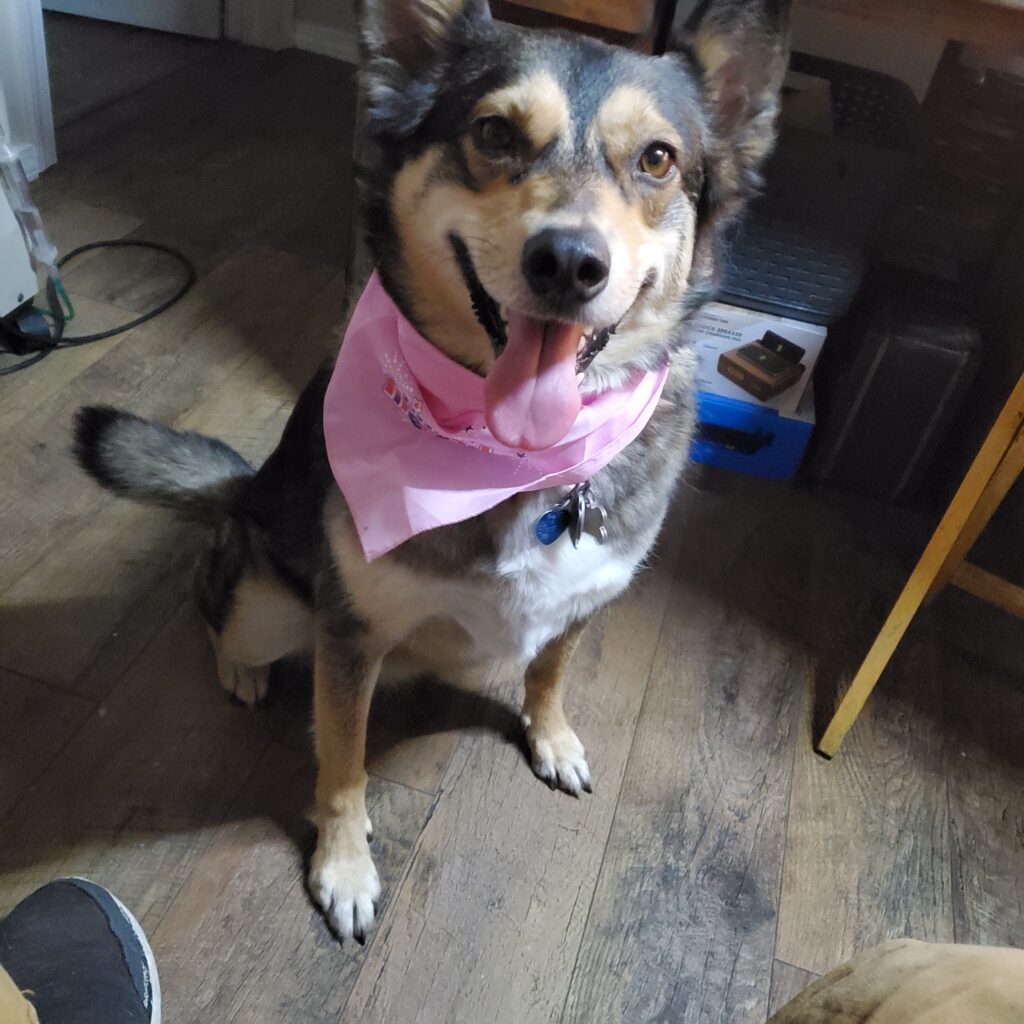Bringing home your first dog is no small step. Being a dog owner is a gigantic responsibility and normally a 12- to 15-year commitment. You must be prepared emotionally and financially. For sure, it will also be time-consuming. But dog lovers agree that it is all worth it. There are more than a few things to think about to prepare you for what lies ahead. This means adjusting your lifestyle, making a new budget, and, of course, consulting with the other people in your household.
What Kind of First Dog is Right For You?
- There are many breeds of dogs to choose from. These range from small to extra-large. long or short hair, a double coat, or a single coat. Their energy level is worth consideration. Do you want a puppy, or is an adult dog more to your liking? Other considerations include ease of training, grooming needs, health concerns, personality traits, and more. Each breed has its pros and cons. It all depends on your lifestyle and personal preferences.
- Another concern is: do you want a purebred or is a mutt just as good? First off, a purebred simply means these dogs have registration papers that signify both parents were registered, and they are the same breed. It has nothing to do with the quality of the dog. Mixed-breed dogs have no pedigree and are normally the result of accidental mating. They can inherit all the best or worst traits of their parents. Mixed-breed dogs make terrific pets and are a popular choice all over the world.
- Then we have designer or hybrid breeds of dogs. They were created by deliberately joining existing breeds to form new ones. Many dog breeds were created this way, but many are so ancient that their origins cannot be traced back that far. The designer dog of today is used to market hybrid dogs, which may or may not have the desired qualities. Shelters will label mixed breeds as designers to encourage adoptions. Puppy mills had to get in on the act by creating interesting mixes that sell for top dollar.
Some Factors to Consider Before Getting Your First Dog
Activity Level
- The breed of dog normally determines the dog’s activity level, but it does not depend on that alone to find out how energetic the dog will be. Every dog needs routine exercise every day. Regular exercise keeps dogs healthy and happy. Daily walks or backyard playing help burn off excess energy, maintaining weight.
- I find that it also helps me get exercise, which I definitely need, and it soon becomes a normal routine. If you are not into walking, you more likely should get a lower-energy dog. If you like to jog, there are plenty of high-energy dogs to pick from.
- Many behavior problems stem from dogs that have too much energy and no way to work it off. Regretfully, many of them are given up or euthanized because of a lack of socialization, exercise, training, and attention. You can see how important it is to research and make sure your future pal is compatible with your lifestyle. Regular exercise keeps dogs healthy and happy. Daily walks or backyard play burn off excess energy while maintaining weight.
Age
- Puppies need the most attention and training, particularly in the first 6 months. You will need to commit much of your time to housebreaking and raising your new puppy. You must have patience during this time. There is a good chance that there will be plenty of accidents, so do not forget to put up your slippers and try not to leave anything out that might be chewable. Patience is necessary here. The problems will go away with time and a dedicated training schedule.
- Adult dogs can be the right choice. They will give you a great idea of their true energy level, attitude, coat, size, and temperament. Most adult dogs have been house-trained. Just because they are adult dogs does not mean they are trained in all areas; they may have some basic obedience training, so they might need some dedicated training in the beginning. An older dog can learn new tricks.
- Senior dogs can make good pets, too. They still have the same requirements as their younger counterparts. They do not need as much exercise as they did in earlier years. Their food and its intake will more likely change a little. But they remain affectionate and become loyal family members. Large breed dogs reach senior at 5–6 years of age, compared with small breed dogs that reach senior at the age of 8–10. It is important to know a senior dog needs special attention, is more likely to grow into health problems that cost money and time to manage, and requires more frequent vet visits. Another downfall is that the senior dog will not give as many years as an adult dog or puppy can.
Breed
- If you are set on getting a purebred puppy, you should buy from a responsible breeder. It is risky to buy a purebred puppy online because a lot of them are from puppy brokers or puppy mills. You do not want to take the chance that they were poorly bred and suffer from health or behavior problems. On the other hand, responsible breeders are serious about the health of their dogs and puppies. They do not offer their puppies to anyone. They want to talk to puppy buyers to make sure their pups are going to a responsible home.
- The American Kennel Club is a good place to start looking for a good breeder. They list purebred dog breeders in good standing on their website. Finding a breeder within driving distance allows you to visit their home and meet the adult dogs. A puppy buyer should interview the breeder. Look for signs of responsible breeding and healthy pups.
- Most cities have at least one shelter or rescue group where you can find mixed and purebred puppies and adult dogs. You will feel good knowing you are saving a life and helping reduce homeless pet overpopulation. Most of the time, you may have some fees to cover spaying or neutralizing, plus immunizations. You will find discounts during holidays or special occasions where you can get your new pooch for free or at a discount. Either way, it is a blessing for both you and your new best friend.
Physical Maintenance
- Basic grooming is necessary for all dogs. Some breeds need more, depending on their type of hair coat, and some have drip-dry fur that is easy to care for. As the dog matures, the coat can change some. So, be aware of that. Puppy grooming includes brushing, bathing, ear cleaning, claw clipping, eye care, teeth brushing, and even anal gland attention. Regular grooming is necessary for a healthy, shiny coat. Brush to remove loose hair and prevent matting. Bathe; when necessary, do not overdo it. Trim nails regularly.
- Some dogs are massive shedders, while others seem to never lose any hair. Smaller breed dogs are more likely to have dental disease, which could lead to expensive dentist procedures or even regular dedicated teeth brushing at home. Certain types of dogs are heavy droolers. Their owners carry a slobber rag to wipe the drool. Dogs with floppy, long ears are more likely to have ear infections and may need frequent, thorough ear cleanings.
- Expect an adjustment period when bringing home a new dog. Be patient and prepare in advance. Scared or overwhelmed behavior is common. Adults may need more adjustment time; puppies need training. Set up your home beforehand for a smooth start. Prepare for behavior issues. Educate yourself beforehand. Furthermore, training is vital for control, structure, and bonding. Spend time each day on dog training, including basic commands. Regular vet visits are essential for pet health. Schedule annual wellness exams, vaccinations, and preventative care. Promptly address behavior or health changes. Regular exercise keeps dogs healthy and happy.
Size
- Smaller dogs make good lap dogs, but they are more delicate, making them easier to injure. A significant injury can result from being mishandled or stepped on. They are also more sensitive to the cold. They can be high-maintenance. Due to their small size, they may need more frequent meals and potty breaks. Obedience training is also for small dogs. They tend to be overlooked because it is so easy to pick them up out of the trouble. This can lead to unwanted behaviors like growling, nipping, and wanting to be held all the time.
- With a medium-sized dog, you get the best of all worlds. Basically, they are big enough not to get stepped on all the time. They normally don’t yip all the time. Certainly, they don’t eat as much as their bigger counterparts, nor do they need as much space. Indeed, they are more manageable when taken out for a walk.
- The larger the dog, the more space they need to move around. If they are a tail wager, they will need wagging space to avoid damage to household items or an injury to the tail. Another thing to think about is that it will cost more for a larger dog. They eat more dog food, dog supplies will cost more, and medical treatments will be more expensive. Training will make a difference. A large-breed puppy allowed to act like a lap dog when young will grow up and be out of control unless trained while they are young.
Final Thoughts on Your First Dog
- Basic needs for all dogs begin with proper nutrition, a worthy shelter, physical care, and social interaction. Master the basics for a great dog’s life. Learn about canine nutrition. Provide a balanced diet appropriate to age, breed, and activity level. Avoid table scraps or human food; they can cause digestive problems and obesity. Choose the right dog food based on your needs. Ensure your pet has access to clean water. Supply the dog with the necessary items. Research and get both essentials and desired items. Shop online or visit pet supply shops.
- Every dog needs a great vet! One of the first places you will take your new dog is to see the vet. Your veterinarian will look out for your dog’s health, educate you about your dog, and guide you through the world of dog ownership. It is important to always keep the lines of communication open between you and your vet.
- You will have new responsibilities as a dog owner. Commitment to your dog for life, accepting responsibility for the new dog’s actions. You must take decent care of your dog while respecting the community. If you are willing to do these things, you are on the right track for dog ownership.
Without reservation, if you need more information, be sure to reach out and contact us! Certainly, when we officially add you to our online community, you will get more than you thought possible! See how to CONTACT US Here.

